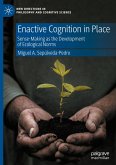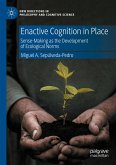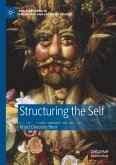This book is the first monograph fully devoted to analyzing the philosophical aspects of affordances. The concept of affordance, coined and developed in the field of ecological psychology, describes the possibilities for action available in the environment. This work offers a systematic approach to the key philosophical features of affordances, such as their ontological characterization, their relation to normative practices, and the idea of agency that follows from viewing affordances as key objects of perception, while also proposing an innovative philosophical characterization of affordances as dispositional properties.
The Philosophy of Affordances analyzes the implications that a proper understanding of affordances has for the philosophy of mind and the cognitive sciences, and aims to intensify the dialogue between philosophy and ecological psychology in which each discipline benefits from the tools and insights of the other.
The Philosophy of Affordances analyzes the implications that a proper understanding of affordances has for the philosophy of mind and the cognitive sciences, and aims to intensify the dialogue between philosophy and ecological psychology in which each discipline benefits from the tools and insights of the other.








